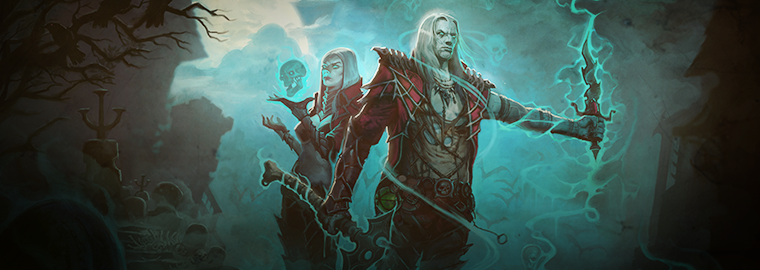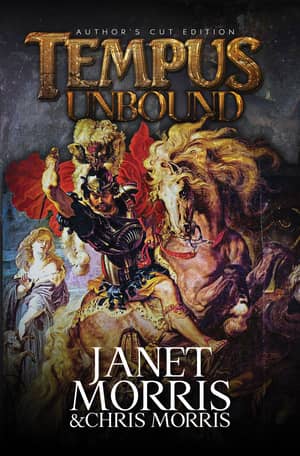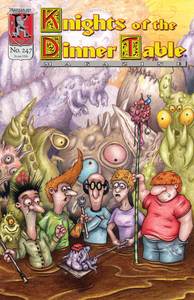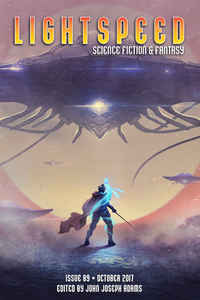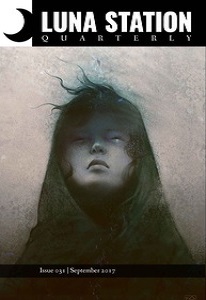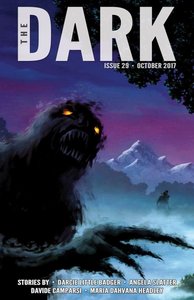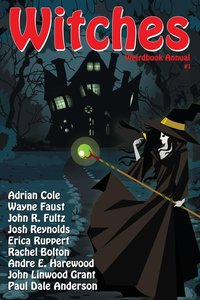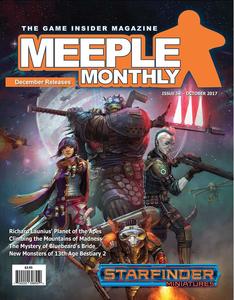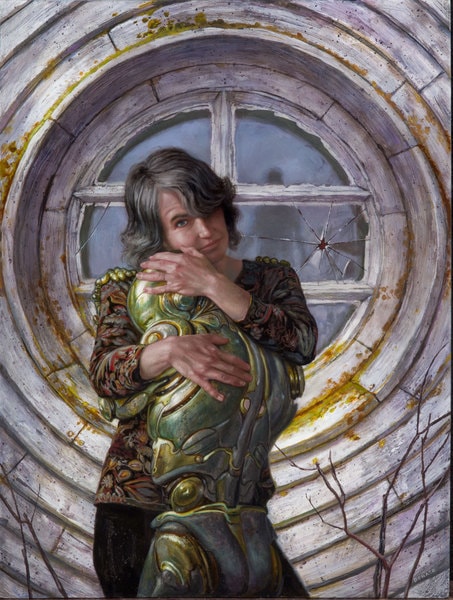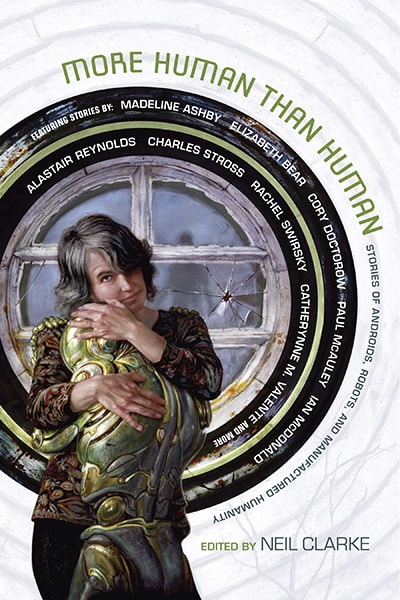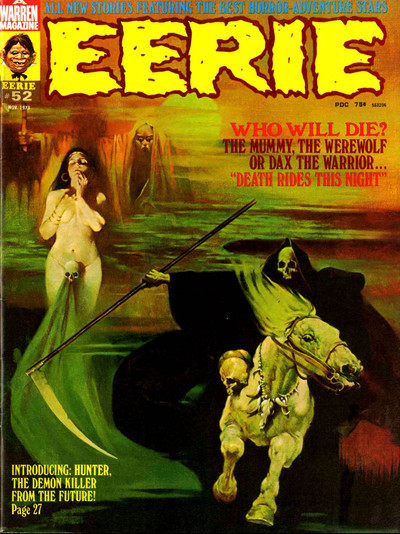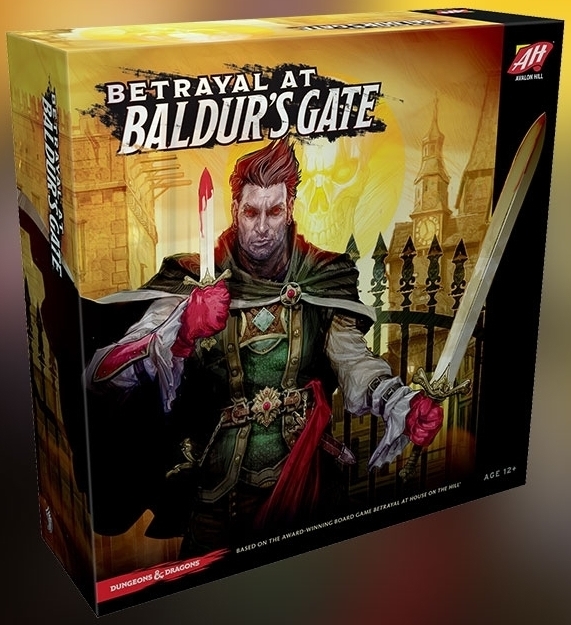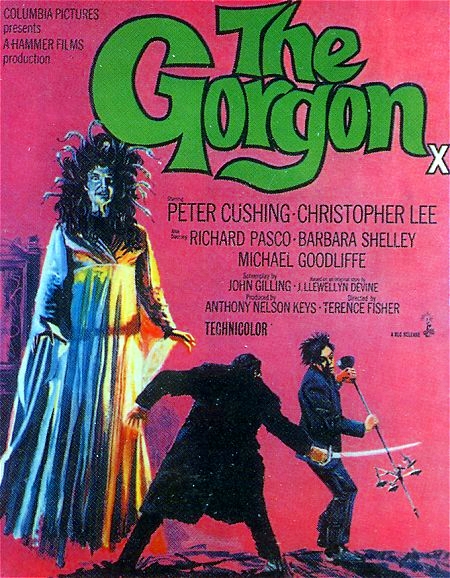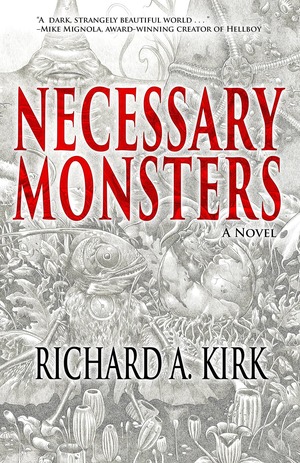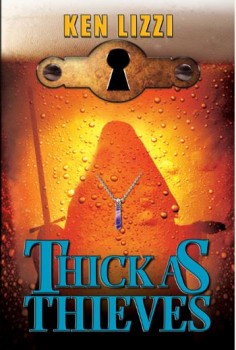 Swords & sorcery and hard-boiled crime stories share significant crossover in themes, characterization, and worldview. Both tend to have solitary heroes possessed of highly personal codes of behavior, flourish on the margins of civilization (be it the steppes of Turan or Poisonville), and over all, equal parts world-weariness and cynicism is de rigueur. Ken Lizzi’s newest novel, Thick As Thieves, amps up the comparison by being a hard-boiled swords & sorcery heist story.
Swords & sorcery and hard-boiled crime stories share significant crossover in themes, characterization, and worldview. Both tend to have solitary heroes possessed of highly personal codes of behavior, flourish on the margins of civilization (be it the steppes of Turan or Poisonville), and over all, equal parts world-weariness and cynicism is de rigueur. Ken Lizzi’s newest novel, Thick As Thieves, amps up the comparison by being a hard-boiled swords & sorcery heist story.
Thick As Thieves’ opening echoes one of roleplaying’s hoariest tropes, by introducing all its primary characters during a fight, if not in a tavern, just outside one in the frontier city of Kalapo. Brick is a giant slab of a man, a veteran of the Merchant’s War, and given to bouts of berserk fury in battle. In dire need of work, he took up the post of bouncer at The Chipped Mug, a less-than-reputable tavern noted for its vinegary wine and its owner, Shib. Shib is Haptha, a non-human race derisively called Sharks for the dorsal ridge that runs atop their skulls. The Haptha are a race of capitalist empiricists who launched and won the war against the human Clackmat Confederacy and Leyvan Hierocracy to force them to give up their mercantilist ways. Glum Arent, an ever-present fixture in the bar, is by trade a poet, but makes most of his living writing letters for the illiterate, penning panegyrics for priests and politicians, and acting as general informant for those same clients.
A wagon wheel on one of Haptha Trader Vawn’s wagons breaks outside The Chipped Mug. While repairs commence, Vawn and one of his bodyguards, Dahlia, a relatively rare Leyvan swordswoman, enter the tavern. Outside, members of Kalapo’s Cartage and Drayage Guild take offense at the trader’s team fixing the wagon themselves. A fight ensues. When the guildsmen attempt to attack Vawn inside the tavern, Brick makes it clear he will brook no trouble, then proves it when his warning is rejected.
“Get the f–k out of the way, freak.” The leading red tunic reached out and prodded Brick — rather scornfully, Brick thought — in the midsection with the tip of his cudgel.
“Don’t,” said Brick. He felt the advance hints of the Fury, a faint haze of red specks at the edge of his vision. The jab with the club was insulting. And the tavern, and the safety of the people within was his responsibility. His job. He tried to keep the anger at bay, though not in great earnest. He recognized the dangers of surrendering to rage, but he liked the Fury. It was what made him a good soldier. It was what had allowed him to ignore fear — not dismiss it, not conquer it, but ignore it. It was what let him tear gaps in enemy positions, be the tip of a human wedge driving into a shield wall. He recognized the disadvantages in civilian life. Slipping the leash from impulse control could be a problem outside a war zone. So, he kept the Fury tightly reined in. But he missed it. And if this punk ass guildsman jabbed him again…
The punk ass guildsman jabbed him again.
The Fury descended like a curtain of crimson sparks. Pent up frustration spewed from Brick like wine from a punctured goatskin bag. He batted aside the cudgel and grabbed the wrist, yanking the man towards him. Brick squeezed and twisted, hearing tendons pop and little bones grind together. At the same time, his other hand shot forward and gripped the guildsman below the armpit of his red tunic. Brick lifted the man, continuing to twist and pull on the wrist. The guildsman screamed as first elbow then shoulder dislocated.
…
Read More Read More
